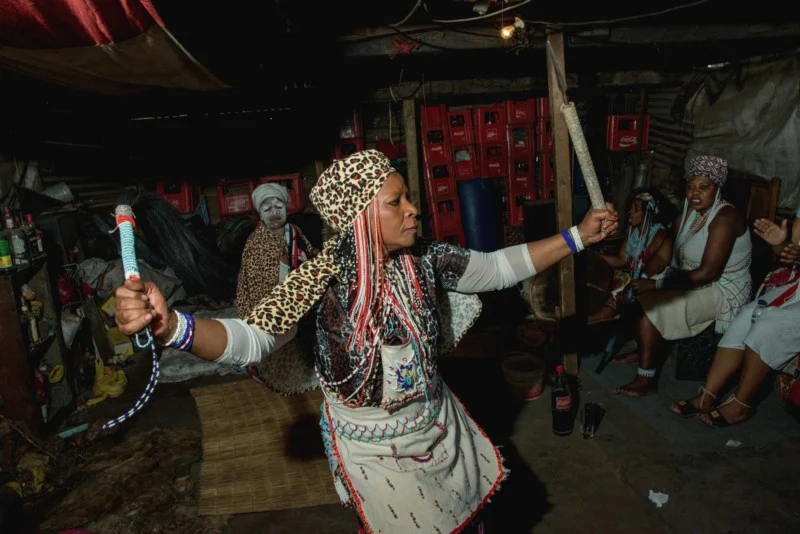Introduction
Mental health care in South Africa is a complex field influenced by various cultural, socio-economic, and historical factors. One unique aspect is the role of traditional healers, who play a significant part in the mental health landscape. This article explores how traditional healers contribute to mental health care in South Africa, the integration of their practices with modern medicine, and the benefits and challenges of this approach.
The Role of Traditional Healers
Traditional healers, also known as sangomas or inyangas, have been integral to South African culture for centuries. They provide various services, including spiritual guidance, physical healing, and mental health support. For many South Africans, traditional healers are the first point of contact when experiencing mental health issues.

Traditional Healing Practices
Traditional healers use various methods to address mental health issues, including:
- Herbal Remedies: Natural herbs and plants are used to treat symptoms of anxiety, depression, and other mental health conditions.
- Spiritual Healing: Rituals and ceremonies are conducted to cleanse individuals of negative spirits and energies.
- Counseling: Traditional healers offer advice and support, often addressing the root causes of mental distress.
Integration with Modern Medicine
In recent years, there has been a growing recognition of traditional healers’ value to mental health care. Efforts are being made to integrate traditional practices with modern medical approaches. This collaboration aims to provide a more holistic and culturally sensitive approach to mental health care.
Benefits of Traditional Healers in Mental Health Care
- Cultural Relevance: Traditional healers understand the cultural context of their patients, making them more accessible and trusted.
- Holistic Approach: They address both the spiritual and physical aspects of mental health, providing a comprehensive treatment.
- Accessibility: In rural and underserved areas, traditional healers are often more accessible than medical professionals.
Challenges and Considerations
- Lack of Regulation: The traditional healing sector is not well-regulated, leading to inconsistencies in the quality of care.
- Stigma: Despite their importance, there is still some stigma attached to consulting traditional healers for mental health issues.
- Integration Issues: Combining traditional and modern practices can be challenging due to differences in methodologies and beliefs.
Case Studies
Case Study 1: Successful Integration In certain regions, programs have been implemented where traditional healers and medical professionals work together. For example, a pilot program in KwaZulu-Natal has shown promising results in improving mental health outcomes through such collaboration.
Case Study 2: Overcoming Stigma In urban areas, initiatives are being undertaken to educate the public about the benefits of traditional healers. These programs aim to reduce stigma and encourage more people to seek help.
Conclusion
Traditional healers play a vital role in mental health care in South Africa. Their practices offer culturally relevant and holistic approaches to healing, making them indispensable in many communities. By recognizing and integrating these practices with modern medicine, South Africa can create a more inclusive and effective mental health care system.
References
- “The Role of Traditional Healers in Mental Health Care” by the South African Medical Journal.
- “Integrating Traditional and Modern Medicine in South Africa” by the Journal of Community Health.
- “Mental Health and Traditional Healing in South Africa” by the University of Cape Town.
If you found this article informative, please share it with your friends and family. For more articles on mental health and wellness, subscribe to our newsletter.
By incorporating traditional healers into the broader mental health care framework, South Africa can continue to make strides in providing comprehensive and culturally sensitive care for all its citizens.


